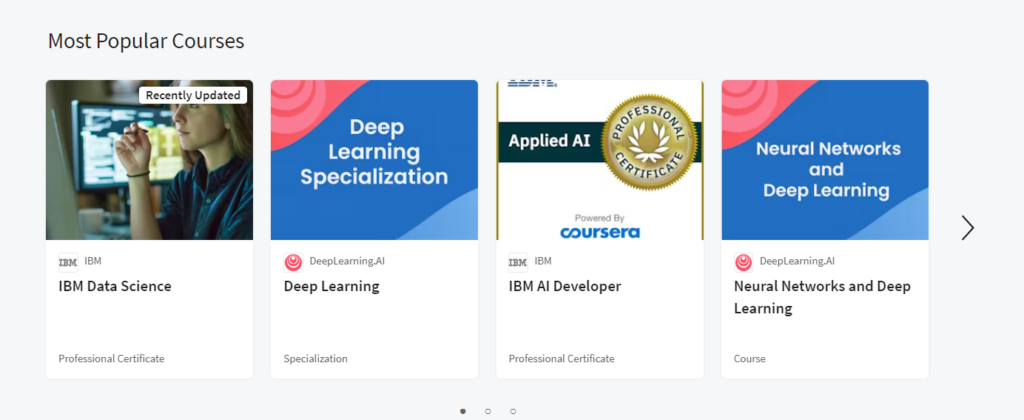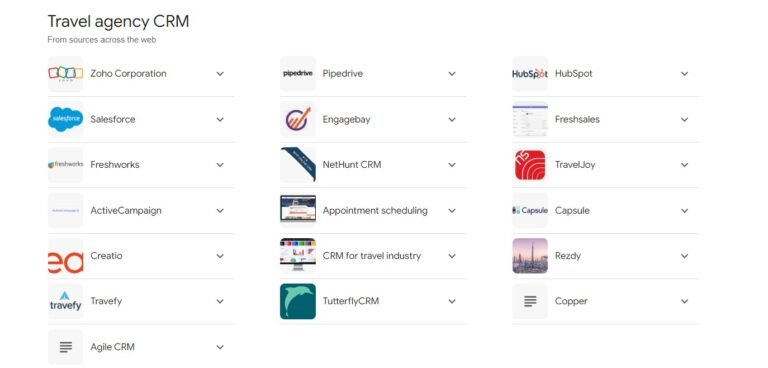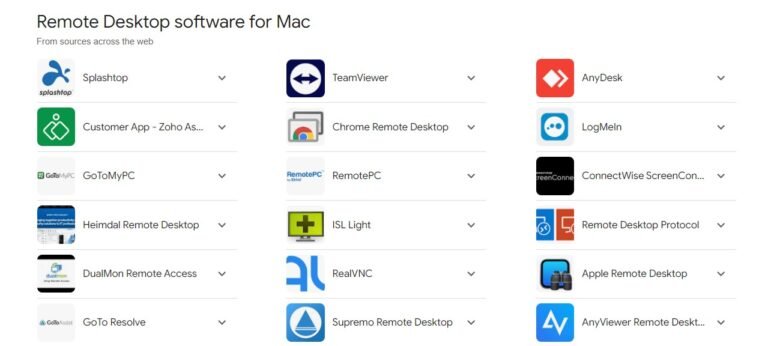Best Machine Learning Course on Coursera 2024

You’ve probably heard of the ‘Machine Learning‘ course by Stanford University on Coursera, haven’t you? Led by the eminent Andrew Ng, this course brilliantly combines theoretical foundations with practical applications. Sure, there are other courses out there, but this one’s got a reputation for delivering knowledge that sticks, thanks to its hands-on projects.
You’ll not only grasp industry trends and techniques, but you’ll also gain an edge in real-world scenarios. But is it the absolute best course for you? Well, that’s a discussion worth having, isn’t it?
Best Machine Learning Courses On Coursera (2024)
- Machine Learning Specialization By Andrew Ng
- Supervised Machine Learning: Regression and Classification
- Advanced Learning Algorithms
- Unsupervised Learning, Recommenders, Reinforcement Learning
- Deep Learning Specialization
- Neural Networks and Deep Learning
- Improving Deep Neural Networks: Hyperparameter tuning, Regularization and Optimization
- Structuring Machine Learning Projects
- Convolutional Neural Networks
What is a machine learning course?
A machine learning course is an educational program that equips you with the knowledge and skills to design, implement, and apply machine learning algorithms and models. This introduction opens a world of possibilities, simplifying complex concepts and making them accessible.
Understanding the basic concepts is imperative to successful implementation. You’ll be introduced to algorithms, the backbone of machine learning, and the various techniques for applying them effectively.
The course explores diverse applications of machine learning, demonstrating its versatility. You’ll see the application of algorithms in fields like healthcare, finance, and e-commerce, emphasizing its real-world relevance. It’s not just theoretical; you’re shown how to use these techniques to resolve actual problems, making the learning experience pragmatic and relevant.
A machine learning course plunges you into the world of AI and empowers you with the skills to create intelligent systems. You’ll learn how to train your models, test them, and fine-tune the algorithms. You’re not just learning about machine learning; you’re learning to create it.
Types of machine learning
Diving into the world of machine learning, you’ll encounter three primary types: supervised learning, unsupervised learning, and reinforcement learning.
Supervised learning, as the term suggests, operates under guidance. You’ll train the model using labeled data, allowing it to make future predictions based on the learned patterns. This type is often used in applications like spam filtering or weather forecasting.
Unsupervised learning, on the other hand, doesn’t rely on labeled data. Instead, it finds hidden patterns in data, grouping similar data points together. It’s commonly used in market segmentation or anomaly detection.
Thirdly, reinforcement learning is about making decisions. The model interacts with an environment, learning from its mistakes and rewards to optimize long-term results. It’s behind the magic of self-driving cars and real-time gaming.
Two subcategories within these types are deep learning and natural language processing.
Deep learning, a subset of supervised learning, uses neural networks to analyze various factors at once.
Natural language processing, on the other hand, allows computers to understand human language, aiding in tasks like speech recognition or sentiment analysis.
Why Learn Machine Learning?
You might wonder, ‘why should I learn machine learning?’ Well, there are numerous compelling reasons. For a start, machine learning has a multitude of applications in industry. Whether it’s finance, healthcare, retail, or transportation, machine learning algorithms are revolutionizing how industries operate.
Secondly, machine learning offers abundant career opportunities. As businesses increasingly leverage data to drive decision-making, there’s a high demand for professionals skilled in machine learning. The field is rapidly growing, and so is the need for experts who can interpret and use complex data.
Moreover, the salary potential in this field is quite impressive. According to Glassdoor, the average salary of a machine learning engineer in the U.S. is around $112,806 per year. This figure can vary depending on your experience level and location, but it’s clear that mastering machine learning can lead to lucrative opportunities.
learning machine learning allows for significant skill development. It sharpens your analytical abilities, improves your problem-solving skills, and enhances your understanding of data.
Best Machine Learning Course on Coursera
Having grasped why machine learning is a significant field to explore, let’s now turn our attention to some of the best courses offered on Coursera that can help you master this discipline. Notably, ‘Machine Learning’ by Stanford University, taught by Andrew Ng, one of the field’s most renowned experts, stands out for its comprehensive curriculum, practical applications, and hands-on projects.
This course offers a deep dive into the latest industry trends and techniques in machine learning. It provides a blend of theory and practice, allowing you to understand the concepts and apply them in real-world scenarios. The course includes several hands-on projects, which ensure you gain practical skills and experience. These projects are crucial in helping you understand how to implement machine learning algorithms and models.
Moreover, with expert instructors guiding you, the course opens up a plethora of career opportunities. You’ll be well-prepared to work in various industries, from tech giants to startups. By understanding machine learning’s practical applications and staying updated with industry trends, you’ll have a competitive edge in the job market.
Best Machine Learning Courses On Coursera (2024)
- Machine Learning Specialization By Andrew Ng
- Supervised Machine Learning: Regression and Classification
- Advanced Learning Algorithms
- Unsupervised Learning, Recommenders, Reinforcement Learning
- Deep Learning Specialization
- Neural Networks and Deep Learning
- Improving Deep Neural Networks: Hyperparameter tuning, Regularization and Optimization
- Structuring Machine Learning Projects
- Convolutional Neural Networks
Frequently Asked Questions
How Long Does It Typically Take to Complete a Machine Learning Course?
Typically, your time commitment and study schedule determine the course duration. With efficient time management, you can track progress and meet project deadlines. However, completion time varies based on the course workload and your learning pace.
Are There Prerequisites for Enrolling in a Machine Learning Course?
Yes, you’ll typically need a basic math and statistics background, programming knowledge, data analysis skills, and an understanding of algorithms to enroll in a machine learning course. These are essential for effective learning.
Do the Machine Learning Courses on Coursera Provide Certification Upon Completion?
Yes, Coursera’s machine learning courses do provide certification upon completion. This certification’s validity and industry recognition can enhance your employment opportunities, career advancement, and is cost-effective compared to traditional education.
What Kind of Practical Skills Can I Gain From a Machine Learning Course?
You’ll acquire practical skills like data analysis, predictive modeling, image recognition, natural language processing, and anomaly detection through a machine learning course. These skills can greatly enhance your profile in the tech industry.
How Can I Apply the Machine Learning Skills Learned in These Courses to Real-World Scenarios?
You can apply machine learning skills to real-world scenarios by working on industry projects, gaining hands-on experience, studying case studies, and implementing practical solutions. It’s all about practice and application.
Conclusion
So, you’re ready to dive into the world of Machine Learning?
Coursera’s ‘Machine Learning’ course by Stanford University, led by expert Andrew Ng, is your ticket.
You’ll explore industry trends, get hands-on experience, and gain valuable insights.
It’s not just about boosting your resume—it’s about gaining a competitive edge in this rapidly evolving field.
Trust me, this course has the potential to take your career to new heights.





